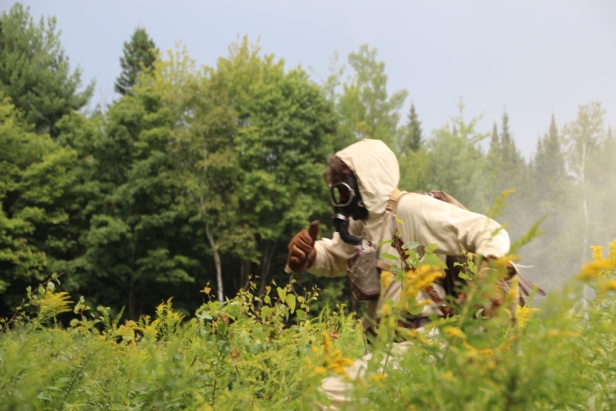In 1929, some students set out to join their professor on a botanical expedition in a remote forested region of Canada – but find the advance campsite empty and the professor gone. After discovering corpses at a nearby abandoned mill, the group realises that they may be in deadly peril.
Sasha Louis Vukovic’s feature debut begins as a period jaunt – all boater hats and gramophone records and jolly campfire boozing – before revealing that these quaintly old-fashioned antics are as much out of place as they are out of time. For these students have entered an environment that will not sustain their presence, engendering the familiar horror scenario of nature’s revenge.
Yet while this subgenre typically involves retaliatory animals, the ecosystem of Flora is a plant kingdom aggressively closed to all fauna. This is not the ‘tree rape’ of The Evil Dead or the hungry mobility of Triffids, but a chemical defence system altogether more rooted in real science.
As the students do their best with outmoded tech to combat an invisible yet deadly antagonist, an interesting if not entirely convincing subtext emerges. The protagonist Ora (Teresa Mare Doran) is a pioneer not just for her travels at the edge of civilisation, but for being “the first woman in the country with a botany degree.” In achieving this she expressly faced stiff opposition from the male academic community – much as the expedition’s nurse Avis (Sari Mercer) was refused permission by her father to train as a doctor.
Yet nature cannot be repressed, and now Ora, a talented scientific illustrator, devotes her spare time to doodling comic-book chronicles (‘The Adventures of Ora’) – a reflex of the film itself – in which she is always the plucky heroine.
Ora’s tenacity and resistance to patriarchal control mark her as an (ever so improbable) analogue to the untameable vegetation all around. This feminist analogy is subsequently confirmed by a somewhat contrived assimilation of her name to the word of the title.
